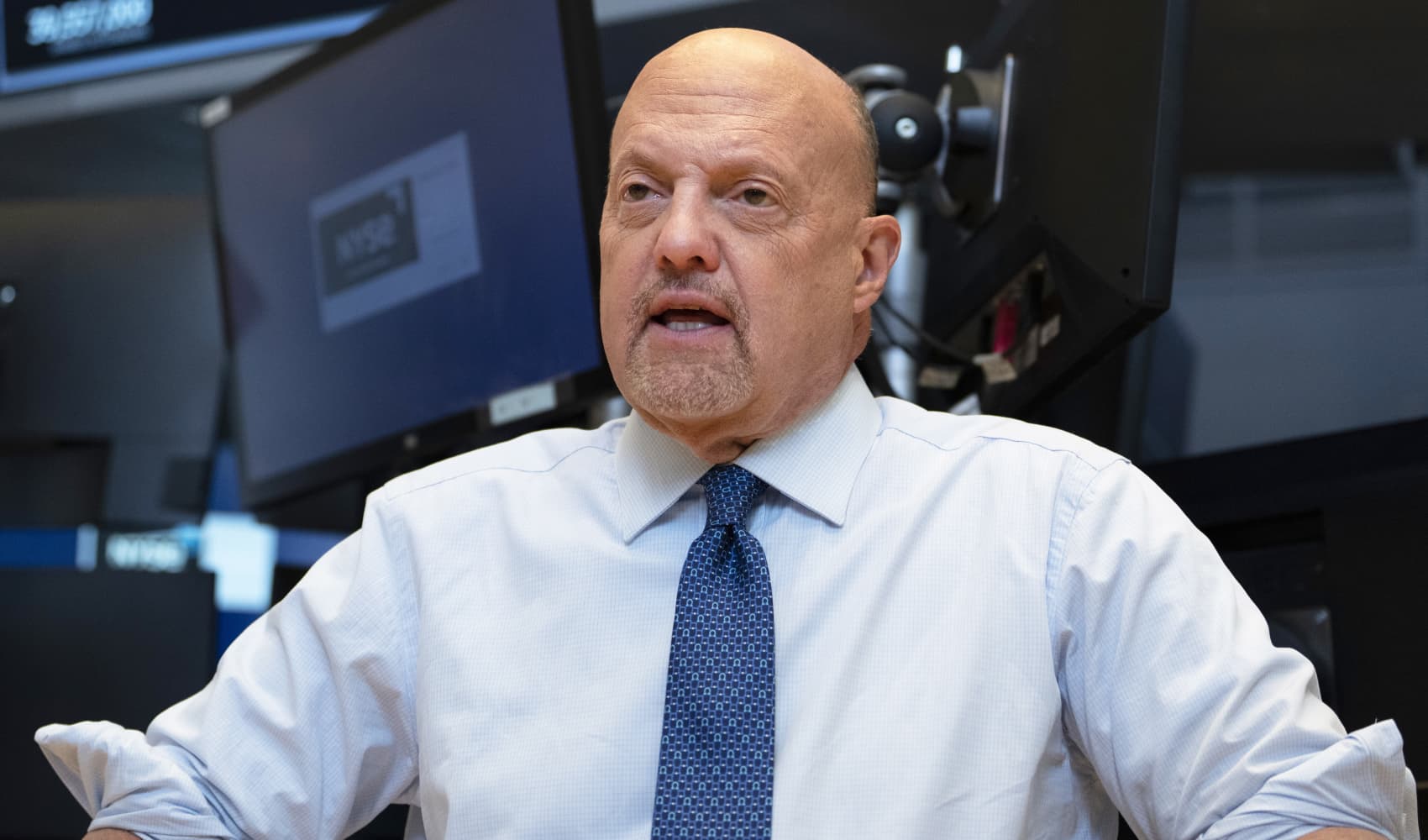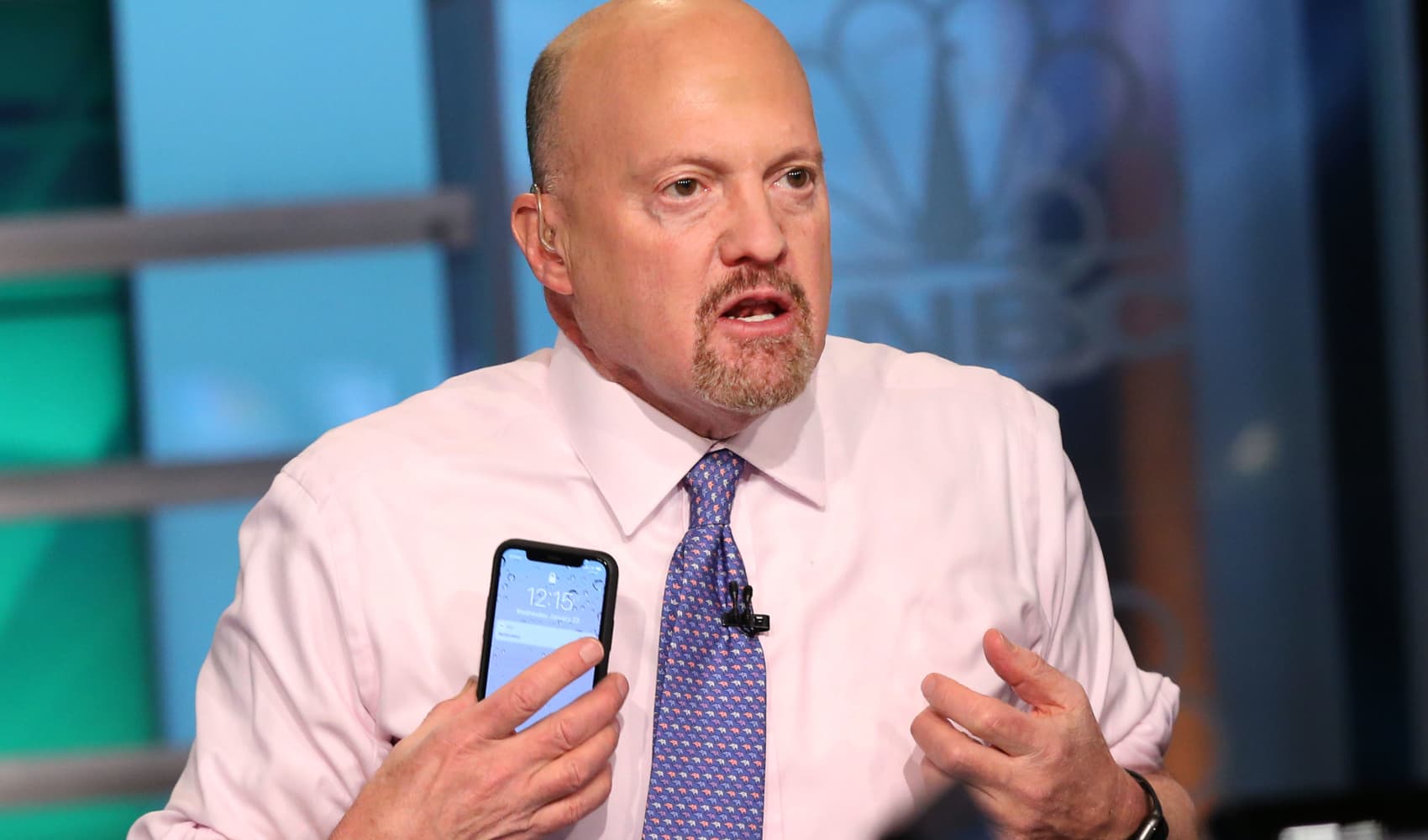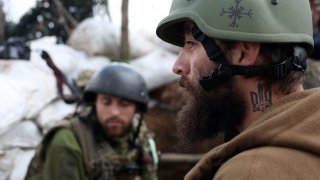
- Russian President Vladimir Putin has launched an unprecedented attack on Ukraine.
- The move comes after Putin ordered troops into two pro-Russian, breakaway regions in eastern Ukraine on Monday.
- Political analysts have been predicting that Russia could invade Ukraine for a while.
- Conflict in the Donbas between separatists, backed by Russia, and Ukrainian troops is nothing new.
Russian President Vladimir Putin is center stage as Russia launches an invasion of its neighbor Ukraine.
There have been multiple reports overnight of explosions, bombings and Russian military vehicles entering Ukraine from various parts of the border with Russia, with a growing number of casualties being counted on both sides.
Get DFW local news, weather forecasts and entertainment stories to your inbox. Sign up for NBC DFW newsletters.
The invasion of Ukraine is an event that many close followers of the president have feared for months, and indeed, years.
Putin had already gained the world's attention earlier this week after he ordered troops into two pro-Russian, breakaway regions in eastern Ukraine and recognizing them as independent states.
Western officials and analysts scoffed at Putin's claim that Russian troops sent into the region will act as "peacekeepers," saying that the latest move could be a precursor to a larger invasion of Ukraine.
Money Report
Political analysts have been predicting that Russia could pull such a move for a while, given an ongoing conflict in the Donbas between separatists, backed by Russia, and Ukrainian troops.
Nonetheless, Putin's actions now, with a larger-scale attack, come earlier and appear more wide-ranging than many expected.
The Kremlin issued more statements on Thursday morning, saying Putin would decide how long the military operation would last "based on its progress and aims." Putin's spokesman, Dmitry Peskov, also told reporters that Ukraine needs to be "liberated," but that "nobody is talking about the occupation of Ukraine," according to Reuters.
CNBC has a guide to what's going on in Ukraine and why it matters:
Why Ukraine?
Heightened fears of a military conflict between Russia and Ukraine have been present for some time, and eastern Ukraine has been the location of a proxy war between the two countries.
Soon after Russia's annexation of Crimea from Ukraine in 2014, pro-Russian separatists proclaimed two republics in the eastern part of the country: the Donetsk People's Republic and the Luhansk People's Republic — much to the Ukrainian government's consternation.
Since then, there have been ongoing skirmishes and fighting in the region, which is known as the Donbas, between Ukraine's troops and separatists.
Germany and France have tried to broker peace deals between Russia and Ukraine, known as the "Minsk agreements." And although the fighting in the Donbas has been punctuated by periods of cease-fire, both Ukraine and Russia have accused each other of violating the terms of the deals and fighting has resumed.
The armed conflict in the Donbas, often described as "war," has already had a high human cost, with 13,000 to 14,000 people believed to have been killed. An accurate gauge of the death toll is hard to reach, given the civil war-like nature of the conflict.
On Tuesday, Putin told reporters that the "the Minsk agreements were dead long before yesterday's [Monday's] recognition of the people's republics" and again blamed Kyiv for their failure.
What has Russia done?
Russia has often denied it has backed separatists in eastern Ukraine but has been accused of supplying military hardware to rebels in a bid to undermine Ukraine's government, sovereignty and political stability.
After its invasion and annexation of Crimea, which prompted international sanctions on Russia, Western officials feared Putin's eventual aim was to invade more parts of the country and to install a pro-Russia regime in Kyiv.
Russia has repeatedly denied it plans to invade but the recent massing of more than 100,000 troops along the border with Ukraine, and more soldiers stationed in its ally Belarus for military drills, has only served to strengthen concerns that a full-scale Russian incursion is imminent.
Russia's recognition of the self-proclaimed republics in eastern Ukraine on Monday lends an official stamp to Moscow's support of rebels there, but it has already tried to "Russify" the region by offering Russian passports and citizenship to residents there.
Political analysts saw the move in 2019 as a cynical precursor to an incursion because if Russia chose to invade, it could say it was only doing so to "protect" its citizens from Ukraine. Russian state media has already focused on Donbas residents fleeing the region in recent days, alleging this was due to shelling by Ukraine's military.
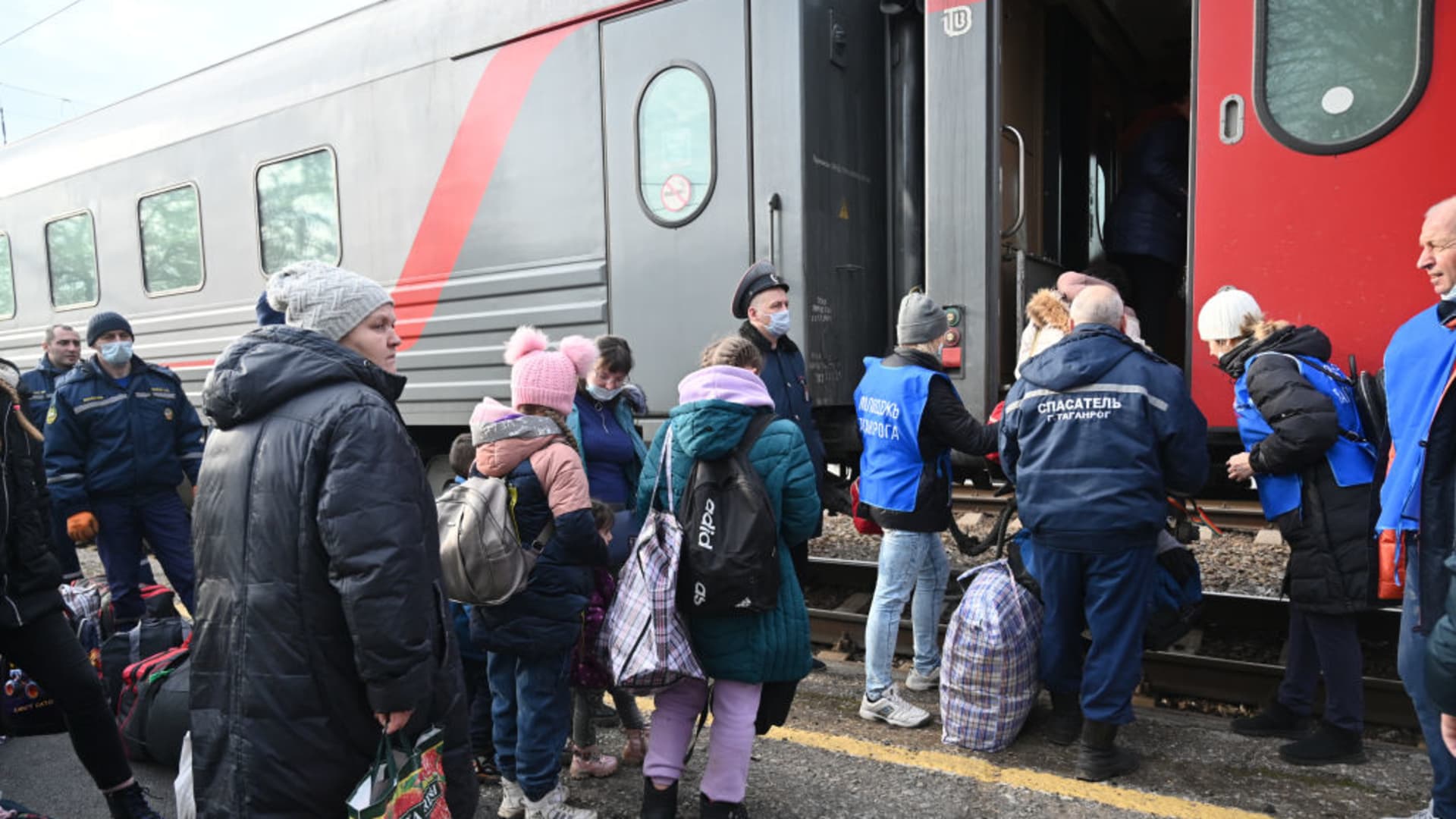
Signaling Russia is pursuing such a strategy, Putin justified ordering troops into eastern Ukraine on Tuesday by saying Moscow's recognition of the "republics" was "dictated precisely by the fact that the Ukrainian leadership had publicly declared that they were not going to abide by these [Minsk] agreements."
"What more is there to wait for?" he said. What's more, when asked whether Russia recognized only the borders of the self-styled republics, or beyond and including the larger Donetsk and Luhansk regions in which they are located, Putin signaled it was the latter:
"With regard to the borders within which we will recognize these republics, we did recognize them, which means we recognized their foundational documents, including the Constitution, and the Constitution stipulates their borders within the Donetsk and Luhansk regions at the time when they were part of Ukraine."
What does Putin want?
Essentially, the battle over Ukraine is a battle for influence and power. Ukraine's government, now under President Volodymyr Zelenskyy, has pivoted toward the West in recent years, aspiring to join the EU and NATO and to move away from its post-Soviet orbit of Russia.
Putin, meanwhile, has decried the dissolution of the Soviet Union as a catastrophe and over his 22-year rule in Russia he has sought to rebuild Russia's power base and sphere of influence over former Soviet states, like Belarus, Georgia and Ukraine — something of the jewel in the crown in the USSR, and a natural buffer state against Europe.
Putin has often extolled the historical unity of Russia and Ukraine and did so again Monday when he ordered troops into the Donbas.
Ukraine's drift toward the West aggravates Moscow because it does not want to see NATO, or the EU, expand eastward to incorporate Ukraine despite there being no imminent prospect of Ukraine becoming a member of either body.
In December, Russia demanded legal assurances that Ukraine would never be admitted to NATO but those demands were refused. Analysts have said Putin knew the demands would be rejected but was then able to say Russia's security concerns had been ignored, selling this to the Russian public via the media, most of which is pro-Putin because it is either state controlled or has links to the government.
As such, it's no surprise that Russian state media has repeatedly blamed Ukraine and the West for aggravating tensions in the Donbas region, accusing both of spreading misinformation and of ignoring Russia's security demands.
Russia's latest actions have drawn international condemnation, with the U.S., EU, Japan, Australia and the U.K. all announcing new sanctions on Russia, although the country has already lived under sanctions for its Crimea annexation, 2016 U.S. election interference, cyberattacks and more.
All-out war in mind?
Close watchers of Putin have long believed that Russia has prepared for more sanctions and that Moscow has a bigger plan in mind when it comes to Ukraine, a hypothesis apparently being proven by the latest events in Ukraine.
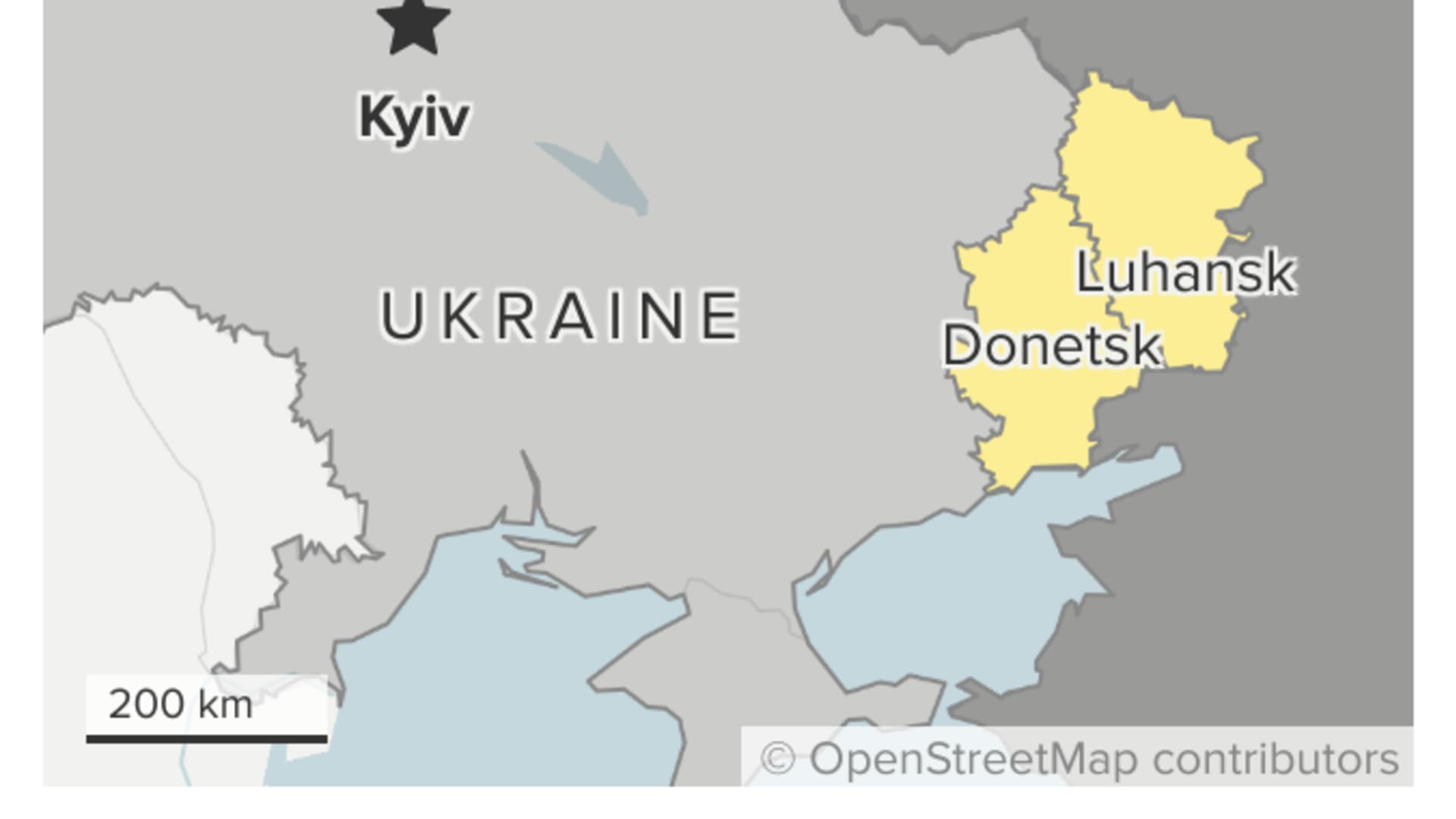
Timothy Ash, senior emerging markets sovereign strategist at BlueBay Asset Management, said in a research note Tuesday that Putin's recognition of the self-proclaimed republics meant that he "gets to bear the cost of supporting 3.5 million generally poor people. He gets the sanctions impact. He pulls out of Minsk 2, so gives up his plan for a Federal solution for Ukraine as a means to stop its Western move. And he is internationally seen as a bad guy stealing territory from other countries."
"Really this only makes sense is if this is the start of something bigger and this is all just about trying to provoke the Ukrainians and the West into some illogical counterreaction, and what I think is really going on here, is that he is building the case for all out war with Ukraine with the Russian population," Ash said.


